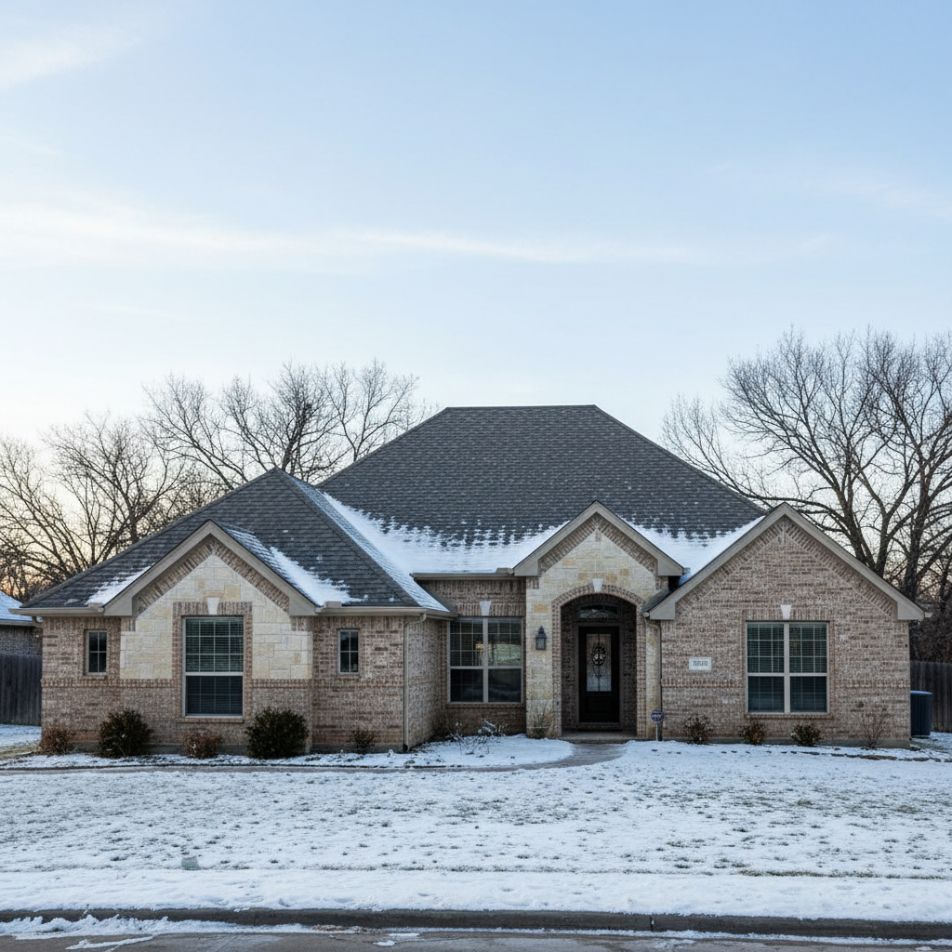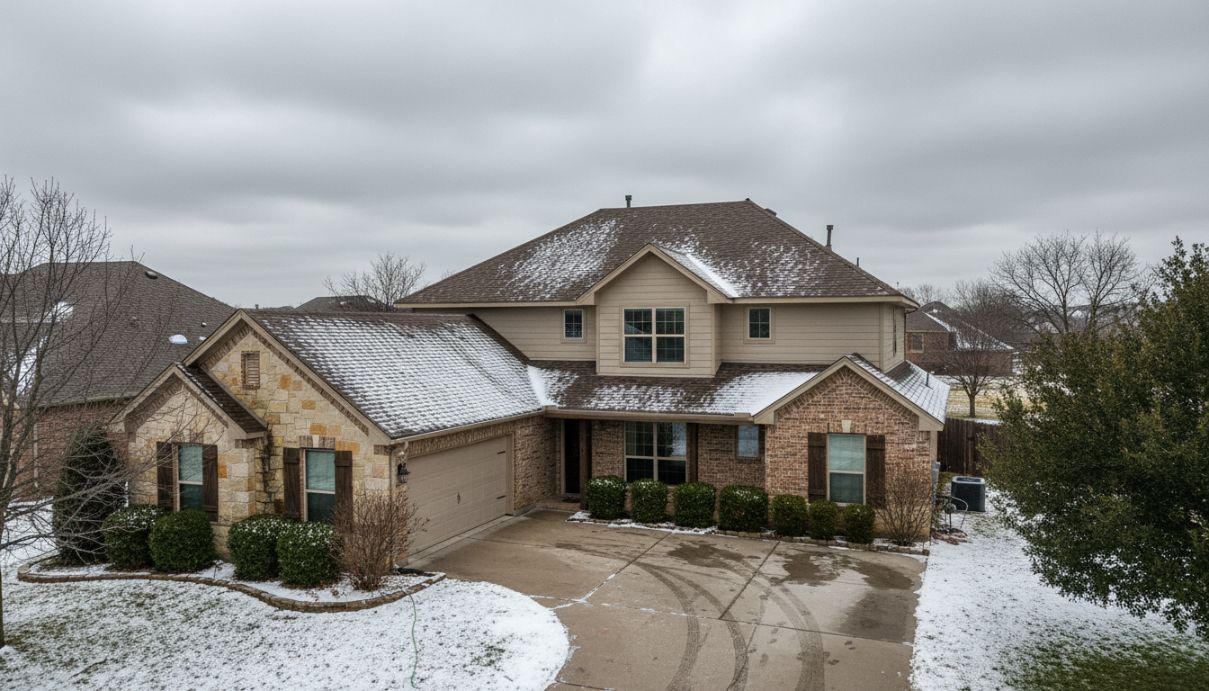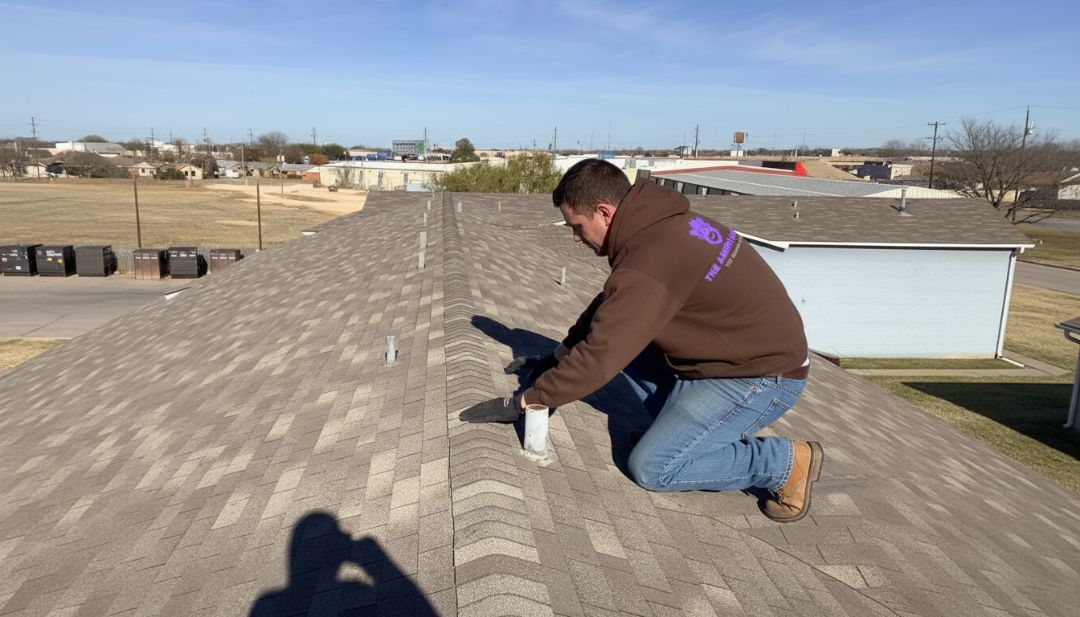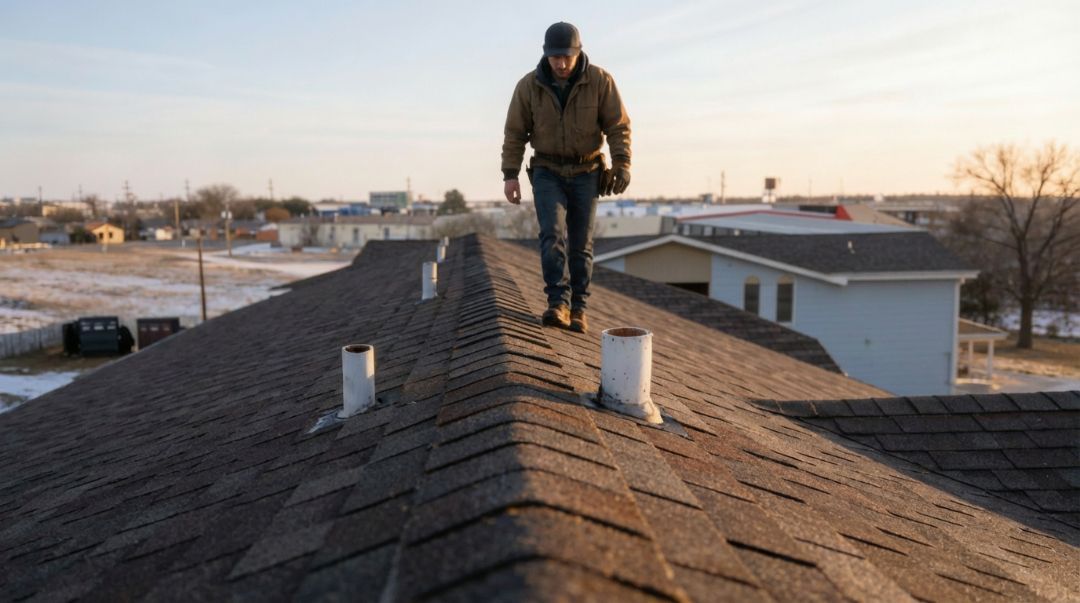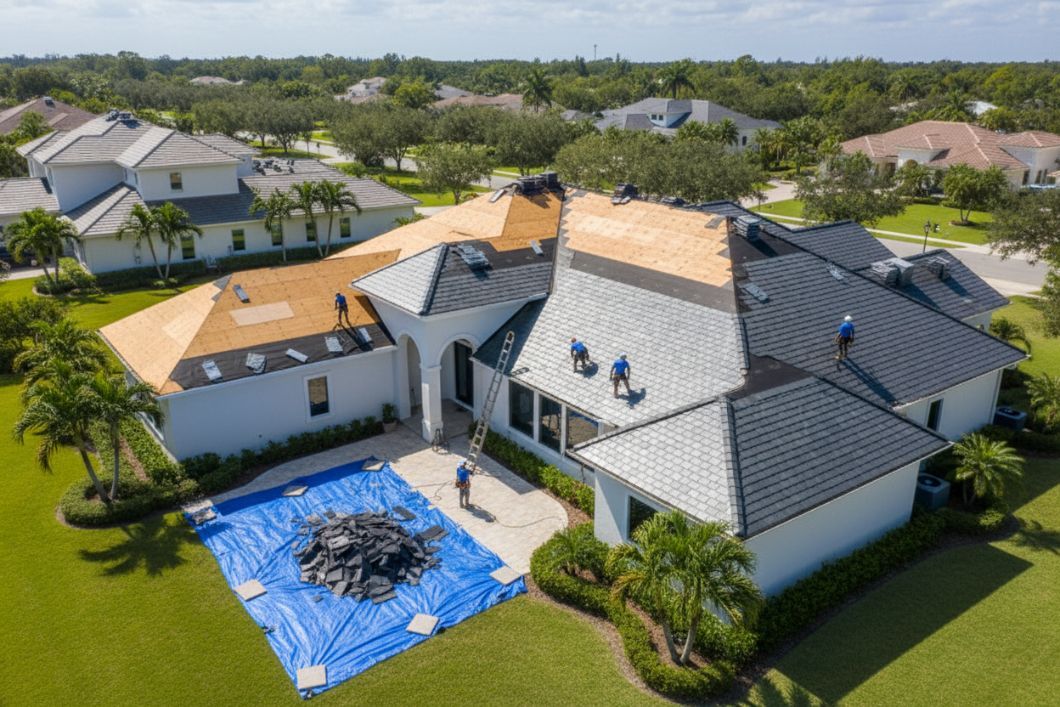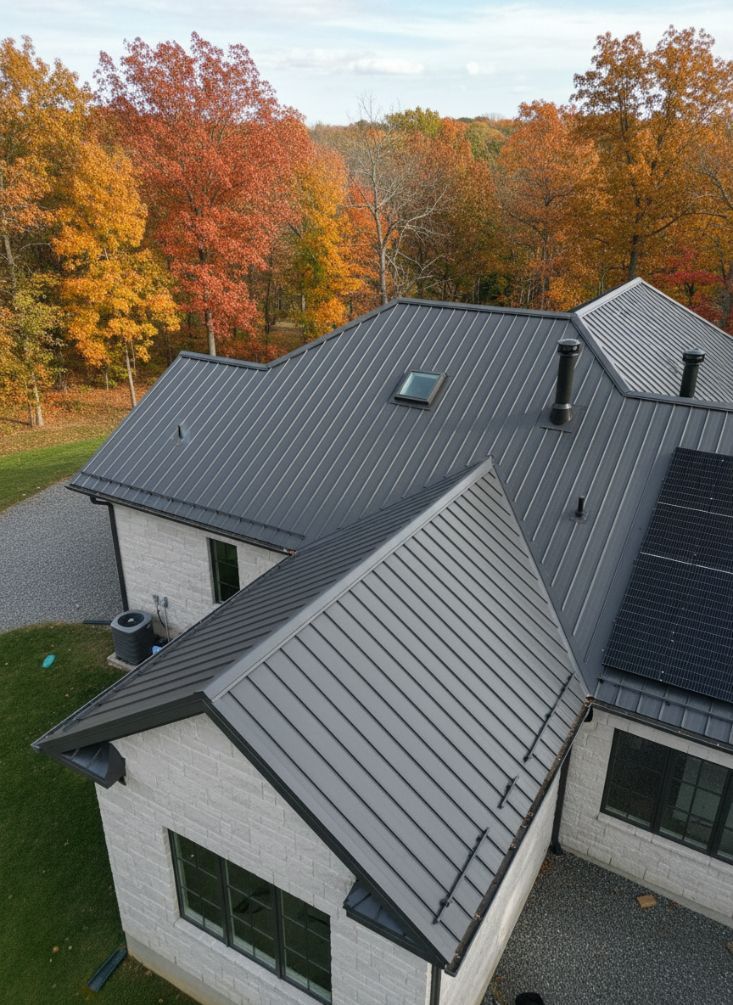Should You Stay Home During Roof Replacement?
TLDR;
Yes, you can stay home during a
roof replacement, but it’s not always the most comfortable or safest choice—especially if you have kids, pets, or work remotely. The decision depends on your tolerance for noise, safety concerns, and whether you’re comfortable navigating a temporarily chaotic environment.
What Happens During a Roof Replacement?
A roof replacement is more than just installing new shingles—it's a noisy, dusty, and labor-intensive project that temporarily disrupts your home environment.
Here’s what to expect during the roof replacement process:
- Tear-Off Phase: Your old roof is removed, which creates debris and constant noise. This is usually done on the first day.
- Repair & Prep: Damaged decking is repaired and underlayment installed.
- Installation: New roofing materials are laid down, requiring power tools and frequent foot traffic on the roof.
Roof installation noise levels are high. Constant hammering, machinery, and movement above your head can feel like living inside a construction zone.
How long does roof replacement take?
- Most residential roofs are completed in
1–3 days
- Larger homes or complex roofs may take up to a week
- Delays may occur due to weather or unexpected damage
Roofing job timeline:
- Day 1: Material delivery, setup, and tear-off
- Day 2-3: Installation and cleanup
Pros of Staying Home During Roof Replacement
You might be wondering—is it okay to stay during roof work? For many homeowners, the answer is yes, with caveats.
Here are the benefits of staying home during roof repair:
- Supervision: You can address questions in real-time and ensure the job is proceeding correctly.
- Cost Savings: No need to spend on hotels or temporary accommodations.
- Quick Decisions: If surprises arise (like hidden water damage), your input is immediately available.
- Direct Communication: Face-to-face contact with the roofing crew or project manager is easier.
Anecdote: One
Amish Roofer client chose to stay and was able to approve a crucial underlayment upgrade on the spot, preventing a delay.
Cons of Staying Home During Roof Work
While staying home can be practical, is it safe to stay home during roof replacement? Not always.
Potential drawbacks include:
- Safety Risks:
- Falling debris near entrances or windows
- Open roof sections leaving areas exposed
- Ladders and tools create hazards around your home
- Health Triggers:
- Dust and insulation particles in the air
- Constant hammering can be stressful, especially for sensitive individuals
- Noise and Privacy:
- Roofers will be directly above your living space
- Routines like napping, meditation, or phone calls may become impossible
- Pets and Children: They may be startled or even endangered by the noise and movement
Roof Replacement Safety Tips for Those Staying Home
If you decide to remain on-site, prioritize safety and comfort. These roof replacement safety tips will help:
- Mark Safe Zones:
- Avoid rooms directly beneath roofers
- Choose a quiet room as a retreat
- Best Times to Step Out:
- Plan errands in the morning when roofers start
- Use lunch breaks for fresh air
- Communication Tips:
- Designate one person to talk with the foreman
- Ask for daily briefings or status updates
- Install Protective Measures:
- Ask the crew to erect
protective barriers at entry points
- Inquire about contractor liability and insurance coverage
How to Prepare Your Home Before Roof Replacement
Proper preparation prevents damage and reduces stress. Use this roof replacement preparation checklist:
- Inside Your Home:
- Remove pictures, shelves, or wall art that may fall from vibration
- Cover attic insulation and storage with tarps
- Move fragile items from shelves
- Outside Your Home:
- Clear driveways and patios of vehicles, lawn furniture, grills
- Protect garden beds and landscaping with plywood or tarps
- For Pets & Family:
- Inform everyone about noise and limited access
- Make plans for alternative accommodations if necessary
Working from Home During Roof Construction
Can I attend Zoom meetings during roofing? It's possible, but difficult.
Tips for minimizing disruptions:
- Set Expectations:
- Alert your employer about construction dates
- Block off time on your calendar
- Use Noise-Canceling Tech:
- Headphones with active noise cancellation can help
- Consider working off-site for critical meetings
- Optimize Your Schedule:
- Plan work that requires concentration during quieter hours
- Schedule breaks during peak hammering periods
Jobsite noise mitigation is limited indoors, so flexibility is key.
Should Pets and Children Stay Elsewhere?
For many families, roofing safety for kids and pets becomes a top concern.
Common issues:
- Stress Triggers:
- Dogs bark or hide during loud noises
- Cats become disoriented and fearful
- Children may cry or become irritable
- Potential Hazards:
- Pets may escape through open doors
- Falling debris may harm curious kids near windows
Recommendations:
- Arrange Alternatives:
- Doggy daycare or friend’s house for pets
- Grandparents or neighbors for children
- If Staying:
- Create calming zones away from noise
- Use white noise machines or soft music
Making the Decision — Stay or Leave?
Ultimately, the answer to “should you leave home for roof replacement” depends on your lifestyle, comfort tolerance, and family needs.
Ask yourself the following:
- Do you have infants, elderly family members, or pets at home?
If yes, the noise and safety risks may be too much—consider staying elsewhere. - Do you work from home and require a quiet environment?
Constant hammering will disrupt meetings and focus. - Can you isolate yourself in quieter zones of the house?
If not, expect significant disturbance throughout the day. - Are you sensitive to noise, dust, or have respiratory issues?
Staying may not be worth the health risks or discomfort. - Do you have budget flexibility for a short hotel stay or Airbnb?
If yes, it may offer you peace of mind and a more comfortable experience—and may be easier to justify if your roof cost Texas estimate is already at the higher end of your budget.
If you answered “yes” to three or more of the above, it’s probably best to arrange temporary accommodations. If not, staying home may be manageable with the right preparations.
FAQs About Staying Home During Roof Replacement

